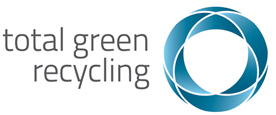Australian e-waste ending up in toxic African dump, torn apart by children
ABC News
A computer monitor from St George Bank, destined for recycling in Australia, is found on a toxic e-waste dump in west Africa, being pulled apart by children as young as five. Read the full story
Here Is How You Can Prevent Your E-Waste From Being Illegally Exported To Developing Countries!
1) Start by asking the right questions:
Legitimate recylcers are only too happy to explain how they recycle and where your items and all the different materials they contain will go.
Questions you can ask include:
- What is the address of your recycling facility?
- Can i visit your site to see your recycling process in action?
- Do you complete the recycling and disassembly yourself or do you use a 3rd party recycler?
- What do you do with the hard drives that you receive in the computers?
- Where do you send your batteries and printed circuit boards and how are these recycled?
- Will i receive a certificate from your company to guarantee that my e-waste has been recycled in accordance with Australian standards and regulations?
Often you will be able to catch out illegitimate recyclers with some of these questions as they will not have true answers and only illegitime operators would have an incentive to lie about their answers to any of the above questions. Ask the right questions and you will easily have these people on the back foot. Knowledge is Power!
2) Check the Recycler’s website for evidence of Accreditation and Certification
At a minimum all legitimate e-waste recyclers will be accredited to and should be able to provide evidence of the following certification and/or accreditation:
- ISO 14001 – Environmental Management System
- ASNZ 5377 – Collection, storage, transport and treatment of end-of-life electrical and electronic equipment
- Check the JAZ-ANZ Register by typing in the company name to see which standards they are certified to
If a recycler cannot produce evidence of the above minimum accreditations then you can almost be certain that they are illegitimate and will most certainly be exporting e-waste illegally for profit. You should avoid doing any business with such companies as it is very easy to say “Yes we will recycle your e-waste” and quite another to actually recycle it here in Australia.
3) Learn about the National Television and Computer Recycling Scheme (NTCRS)
In 2011 the NTCRS was established here in Australia, it is designed to provide free recycling services for e-waste to the public by charging an recycling tariff on the import of new electronic devices into Australia.
Want to find out more:
- National Television and Computer Recycling Scheme:
- Recycling Drop-off Locations
- Approved Co-Regulatory Arrangements
4) Request a Quotation for Service
If you have e-waste and your items are not suitable for re-sale or direct re-use then there will almost always be a cost to collect these items and sometimes there can be cost to recycle items that are not covered by the NTCRS. If a company is offering a completely free service and they have not demonstrated that they are a registered recycler under the NTCRS then you can probably not rely on them doing the right thing with the e-waste they receive.
Often times these companies can make money by collecting all the material, selling of the working equipment/parts and then dumping or exporting the non-working parts. By doing so these companies are not helping anybody but themselves.
If you have working equipment that is not very old you can often times even earn a credit against your costs and/or get paid for your items if are suitable for remarketing.
5) Don’t send non-working equipment to auction yards
Auctions can be a great place to send your IT gear after an upgrade and you often times receive reasonable rebates back for your late-model equipment after processing fees. However people should be careful when sending ALL of their equipment to auction.
Often times the auction yards will sell all the good quality working equipment at a good price, however it can be a different story for the non-working or obsolete items. These are commonly lumped together as a “mixed lot” and sold to the highest bidder. This is a common place the e-waste traders and exporters source equipment at very cheap prices.
If you are looking to maximise your returns for your old equipment you can do the following things:
- Separate your items into 2 categories. The first category should be all the items that are definately in good working condition and you would expect still have some resale value here in Australia. You can then create a basic list of what items you have and send this to the auction yard or remarketing company and ask them what you can expect to receive for it.
- Create a separate 2nd category and group all the items together that are either non-working, too old or of questionable resale value. This is likely all to be e-waste and you should seek to contact a recycler to have this recycled properly. In many cases you can do this quite inexpensively if you use a NTCRS approved Recycler.
So there you have it! 5 ways to prevent your e-waste from being illegally exported from Australia and dumped on developing countries such as our friends in Agbogbloshie. They won’t know what you have done, however you will rest easy knowing you have done the right thing!
If you liked this article please let us know! Make a comment below or like us on facebook.
Thanks for reading,
Michael Coghill
